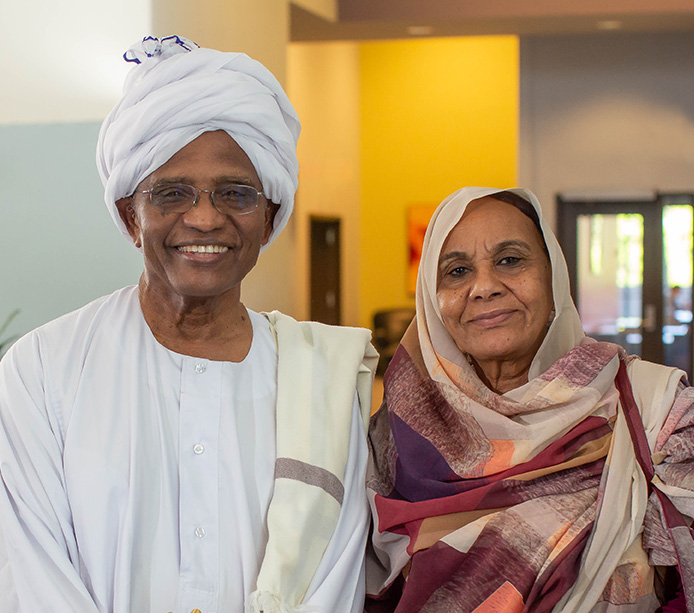Abdullahi An-Na’im
Charles Howard Candler Professor of Law

The courage to think differently
When Abdullahi Ahmed An-Na’im left his native Sudan in 1985, he vowed to uphold the legacy of the author and Islamic reform leader Ustadh Mahmoud Mohamed Taha, who had just been executed for apostasy for promoting a liberal understanding of the faith.
An-Na’im prepared an English translation of Taha’s book “Second Message of Islam,” and he since has worked to promote a “modernist” view of Islam. At the same time, he’s pushed for human rights among different cultural and religious traditions spanning the globe. “My primary motivation for getting into law has been the belief that I can contribute to promoting individual freedom and social justice,” says An-Na’im, who got his law degree from the University of Edinburgh. “I have always found this field to be intellectually gratifying and emotionally fulfilling.”
After serving as executive director of Human Rights Watch/Africa, An-Na’im joined Emory Law in 1995, where he is Charles Howard Candler Professor of Law. An-Na’im’s coursework focuses on human rights, international law, and Islamic law. He’s also a senior fellow of the Center for the Study of Law and Religion. Working at the law school and the center “have provided me the opportunity for advancing the causes of Islamic reform and human rights from an Islamic and African perspective,” he says. His current research focuses on the future of Sharia, the body of religious law that is a critical tenet of the Islamic tradition.
In 2020, the Carnegie Corporation of New York named An-Na’im to its annual list of “Great Immigrants,” a recognition of individuals who have enriched and strengthened the United States and democracy. His writings include the books, What is an American Muslim? (Oxford University Press, 2014), and Muslims and Global Justice (University of Pennsylvania Press, 2011).
Clinical professor of law Laurie Blank, who co-hosted with An-Na’im “Rwanda 20 Years After Genocide: Justice and Judicial Mechanisms,” calls her colleague “a warm, welcoming and gracious mentor to students and supporter to colleagues.” Blank, director of the Center for International and Comparative Law and the International Humanitarian Law Clinic at Emory Law, says An-Na’im demands that his students think critically about subjects rather than accepting them at face value, constantly pushing them — and colleagues — to contextualize religion and human rights and see them both for their good and bad. “In this way, Abduh is a role model for intellectual courage, honesty and passion — someone we can all be inspired by and continue to learn from for years to come,” Blank says.
“In addition to his brilliant scholarship, Abduh leaves a legacy of his extraordinarily forward-thinking and innovative approach, in which he rejected anything doctrinaire in both religion and human rights.”